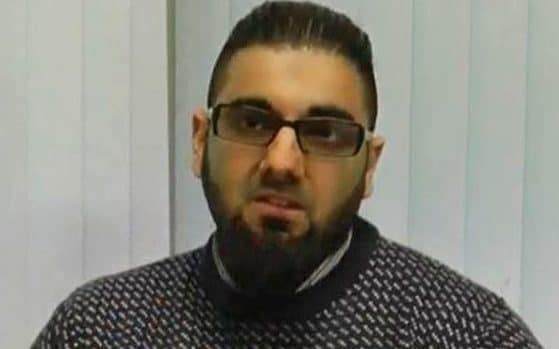MI5 closed investigation into Fishmongers’ Hall terrorist despite his violence in prison

An MI5 investigation into the Fishmongers’ Hall terrorist was closed despite him committing a series of violent acts in prison, an inquest has heard.
The security service monitored Usman Khan, who killed two people in the attack at London Bridge, from 2011 to 2015 when he was an active subject of interest (SOI).
While Khan was in prison for terrorism offences from 2012, MI5 was passed intelligence that he had shouted “cut off the kafir’s [non-believer’s] head” in the middle of his wing, was collecting chemicals in his cell which could be used to build an improvised explosive device (IED), and was suspected of being involved in a plot to murder a prison psychiatrist.
The intelligence agency also received information that Khan was involved in a prison fight in early 2014 and had tried to move to a special unit in Belmarsh so he could be closer to extremist Abu Hamza.
Despite these actions, MI5 closed the investigation into Khan in February 2015 because he was no longer deemed a threat to national security. The conclusion that he was not involved in the plan to murder a prison psychiatrist was a key part of the decision to consider him no longer an active SOI, the inquest heard, as it proved he was no longer plotting attacks.
Witness A, an MI5 officer who gave evidence to the inquiry into Khan’s attack from within a white shielded box to protect her identity, said: “We cannot investigate people forever. Whilst we’d seen indications that he still maintained an extremist mindset and a propensity towards violence, we didn’t see him engaging in the sorts of activities that I mentioned before, like fundraising, like attack-planning.”
As a result, Khan was left unmonitored by the agency between early 2015 and August 2018, when he was reopened as an active SOI because of his imminent release from prison that December.
Shortly before Khan’s release, MI5 was passed intelligence that he had told an inmate he planned to return to his “old ways” after being released. The comment aroused no suspicion and he was automatically released after serving six years of a 21-year sentence.
A month after his release in January 2019, MI5 was passed a play called Drive North written by him and about a man who goes on to murder numerous people with a knife.
Despite the violent nature of the play, which strongly resembled the attack he would go on to commit, the MI5 officers monitoring Khan concluded that it was “in line with the literary works” he was producing at the time as part of his rehabilitation.
The security service continued to monitor the 28-year-old, from Staffordshire, for the following 11 months and again considered closing him as an active SOI whilst he was plotting to carry out his attack.
Witness A told the inquest that MI5 had intended to enhance the surveillance of Khan in the days leading up to his attack to give the intelligence agency “greater reassurance” that he was no longer a threat to national security.
The joint operations team, which involved MI5, Staffordshire Police Special Branch and West Midlands Police counter-terrorism unit, met on November 18, 2019, just days prior to the Fishmongers' Hall attack. However, a decision to dedicate more resources to his movements was never made and he travelled to London unmonitored on Nov 29, armed with three knives and a fake suicide vest.
Khan killed Jack Merritt and Saskia Jones, two Cambridge University graduates who worked for the Learning Together charity that was helping Khan rehabilitate into the community, before being shot dead by armed police on London Bridge.
The inquest into the deaths of Mr Merritt and Ms Jones continues.
